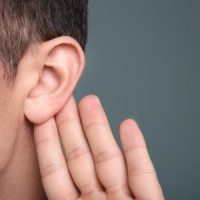Hearing Loss in the Workplace

According to the World Health Organization (WHO), close to 2.5 billion people worldwide will have some degree of hearing loss by 2050, with at least 700 million needing hearing rehabilitation. One common place people suffer hearing loss is at work. According to the CDC, 24% of hearing loss in the nation has been attributed to workplace exposure. At work, hearing loss often happens because of noise. An employee can suffer hearing loss while at work due to exposure to excessively loud noise over a long period. However, noise is not the only way occupational hearing loss can happen. According to the CDC, exposure to certain chemicals can also cause hearing loss. Below is more on occupational hearing loss.
Causes of Occupational Hearing Loss
Occupational hearing loss can happen when you are exposed to excessively loud noise for a long time. Generally, noise is considered excessively loud (dangerous) when it reaches 85 A-weighted decibels or higher. Examples of occupations that expose workers to loud noise include construction, airline work, farming, factory work, military jobs, and transit work.
Another cause of occupational hearing loss is exposure to certain chemicals. When an employee is exposed to ototoxic chemicals, they may suffer damage to different parts of the ear. According to research, exposure to ototoxicants can cause hearing loss, regardless of noise exposure. However, the risk of hearing loss is higher when employees are exposed to ototoxicants while working around elevated noise levels. Substances that contain ototoxicants include solvents, pesticides, and pharmaceuticals, and examples of occupations that are affected by ototoxicants include firefighters and machinists.
The degree of occupational hearing loss can vary from mild to moderate to severe to profound. Some workers end up relying on lip-reading, sign language, and hearing aids to communicate.
Signs of Hearing Loss
It is important that you are able to identify the signs of hearing loss. Immediately after you notice any signs and symptoms of hearing loss, seek medical attention. The following are some of the signs and symptoms of occupational hearing loss;
- Difficulty hearing when there is background noise
- Being bothered by background noise
- Certain sounds are overly loud
- Difficulty following conversations when two or more people are talking
- Hearing voices as slurred or mumbled
- Often needing to ask people to repeat themselves
- Needing to turn up the volume of the radio or television
- Ringing in the ears (tinnitus)
- Trouble hearing the letters of the alphabet that are not vowels
Impact of Occupational Hearing Loss
Hearing loss can adversely affect an employee. Occupational hearing loss can lead to lost wages when an employee takes time off work to seek treatment. It can lead to lost productivity and increased safety risks. Occupational hearing loss can make it hard for a worker to follow directions from a supervisor and communicate with colleagues. This can cause a worker to become demoralized or even depressed. Additionally, occupational hearing loss can lead to substantial medical expenses.
Legal Help Is Available
In Vermont, after a worker suffers hearing loss while on the job, they can file a workers’ compensation claim and recover compensation for, among others, medical expenses and lost wages.
Our Vermont workers’ compensation attorney at Sluka Law PLC has years of experience helping employees recover the workers’ compensation benefits they deserve. You can reach us by calling 802-457-1000 or filling out our online contact form.
Source:
who.int/news-room/fact-sheets/detail/deafness-and-hearing-loss#:~:text=By%202050%20nearly%202.5%20billion%20people%20are%20projected%20to%20have%20some%20degree%20of%20hearing%20loss%20and%20at%20least%20700%20million%20will%20require%20hearing%20rehabilitation
